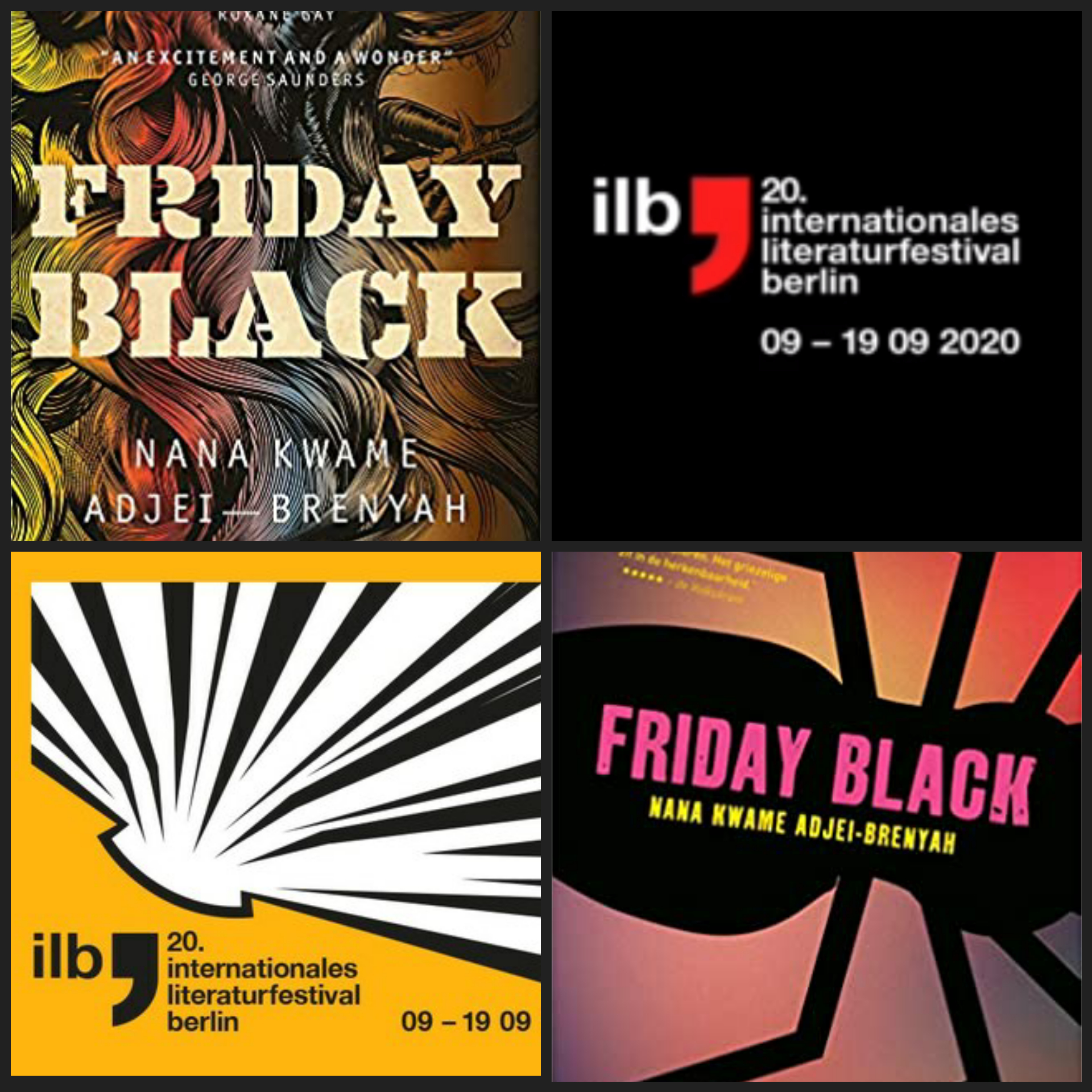
Friday Black by Nana Kwame Adjey-Brenyah: an ilb event
Last Friday evening I tuned in to livestream the ilb’s reading with Nana Kwame Adjey-Brenyah of Friday Black. Adjey-Brenyah’s first book-length publication came out in 2018, and has recently been published in a German translation by Thomas Gunkel. It’s a collection of short stories that explores issues of race and social justice in dystopian near-future settings. I’ll confess I haven’t had a change to read it yet, but now I’m really looking forward to it.
Adjey-Brenyah tuned in from New York City, his face broadcast on a big screen into the darkened auditorium of the Berlin venue in Wedding where a scattered audience sat in dim lighting, as I watched on a screen from another part of Berlin. His room was lit by natural sunlight, testament to the time difference marking the spatial distance between him and his audience – of which we were also reminded by the occasional lag in audio. It was strange, and occasionally awkward, but it did work.
The short story collection begins with “The Finkelstein Five”, in which – be warned, this is gruesome – a white man kills five Black kids with a chainsaw. The title is evidently reminiscent of ‘The Central Park Five’, who as moderator Toby Ashraf noted, are likely to be familiar to many who watched Ava DuVernay’s much-lauded miniseries When They See Us. As suggested by many of the discussion points that came up, Adjey-Brenyah draws on the multiple instances of racist violence in the world around him in conceiving his stories. The author read the opening pages of this first short story aloud in English, and where he ended, the actor Sara-Hiruth Zoude – on stage in the Berlin venue – picked up by reading beautifully from the recently released German translation.
In the discussion that followed the readings, Adjey-Brenyah spoke about his genre choices, specifically the violence, horror and dystopian elements of his writing, as selected with deliberate intent. He aims, as he tells it, to find a way to communicate his horror at the experiences of racial injustice and specifically violence against Black people in the United States, by implicitly forcing his readers to confront the question: when does the horror become unbearable to you? He tries to work in the spaces between, such that his writing prompts readers to wonder if they are reading about an imagined dystopia, about a not-so-distant future, or if this is not in fact the here and now in which we already live.
Evidently, Adjey-Brenyah’s writing works with depictions of some relatively visceral violence. One of the most interesting questions posed by the moderator was about the extent to which, when considering such violence in the USA, a clear divide could or should be made between the prolific violence against Black people, and prolific gun violence. The author’s telling response: Black people tend to be on the receiving end of all of it. Adjey-Brenyah, as he relates it, uses violence as a narrative device in his writing, by displacing it into a surprising or unusual context, or amplifying it grotesquely, in order to de-normalise that violence which has become such a normal part of everyday life – particularly for African Americans.
The author also spoke about other stories from the collection: for instance, the eponymous “Friday Black”, a deliberate inversion of ‘Black Friday’ that puts on display the intersection of violence and gross consumerism. Clearly critical as he and his writing are of current US politics, the US-born writer of Ghanaian parents said that he was too invested in the country of his birth to give up on it, and so tries to write stories as a form of political activism. All in all, and despite the weirdness of the virtual format, it was a great reading and discussion, and by all indications, a book well worth checking out.
